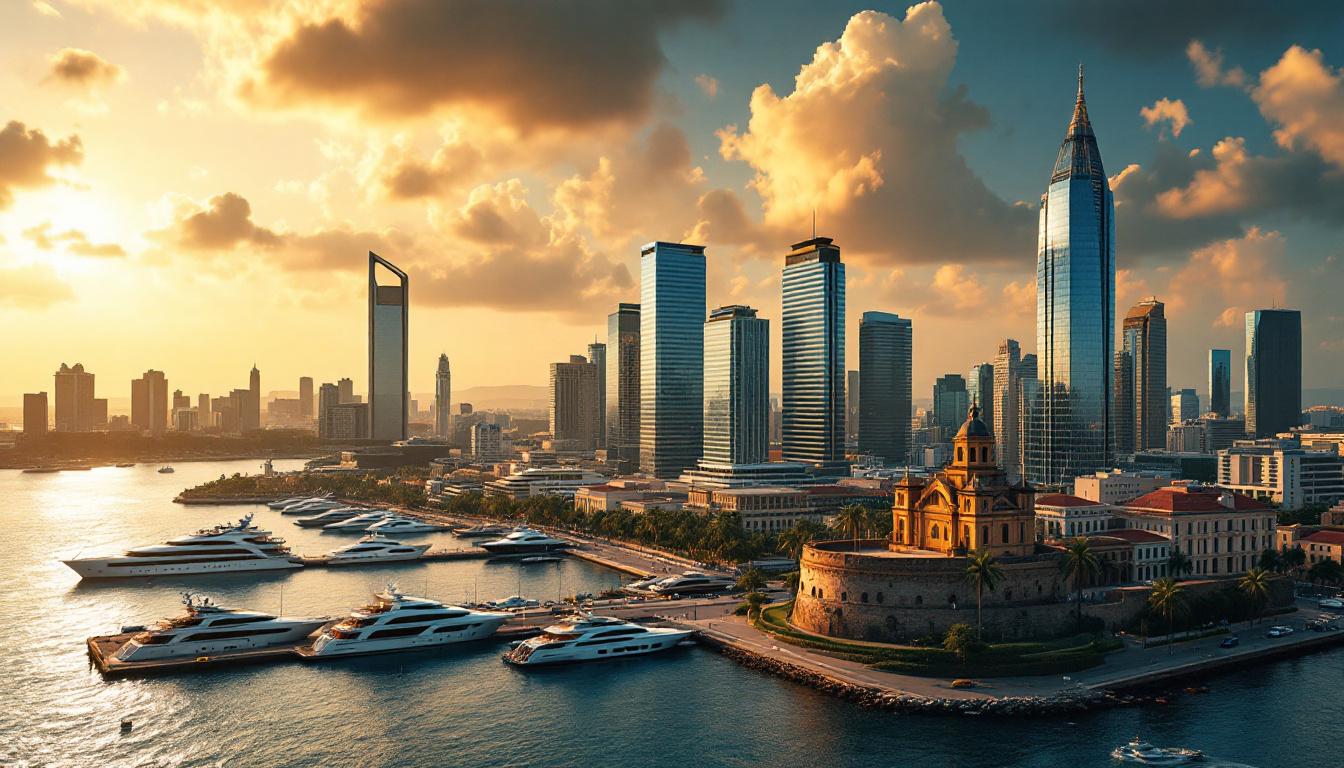Luanda: Africa’s Rising Star Along the Atlantic
A city reborn from conflict’s ashes
Along Angola’s sun-drenched Atlantic coast, Luanda rises dramatically—a metropolis rewriting its narrative since emerging from a devastating 27-year civil war in 2002. This port city, founded by Portuguese colonizers in 1575, has transformed from a war-torn capital into one of Africa’s fastest-developing urban centers, where gleaming skyscrapers now cast shadows over colonial architecture and bustling markets.
Where history stands guard at the harbor
The imposing Fortaleza de São Miguel, with its thick stone walls overlooking the harbor, bears silent testimony to Luanda’s complex past. Built in 1576, this fortress-turned-museum houses military artifacts chronicling Angola’s journey from colony to independence.
“Our fortress isn’t just a building—it’s where Angola’s colonial history, independence struggle, and future aspirations converge in one powerful symbol,” explains Ibrahim Neto, a local historian.
The unexpected lunar landscape just outside town
Just a short drive from the urban bustle, Miradouro da Lua (Moon Viewpoint) presents visitors with an otherworldly spectacle. These eroded cliffs with their striped layers of red, orange, and yellow sediment create a landscape so reminiscent of lunar terrain that locals named it after Earth’s celestial companion.
Mussulo Island: Luanda’s tropical escape
While some seek perfect weather in hidden Arabian oases, Luanda offers its own paradise retreat. The peninsula locals call Mussulo Island stretches like a protective arm around the bay, with coconut palms swaying above wide, sandy beaches. Here, calm waters and relaxed beach bars provide a stark contrast to the metropolitan energy just a boat ride away.
A culinary scene shaped by Portuguese influence
Luanda’s restaurants reveal the deep Portuguese imprint on Angolan cuisine. Seafood dominates menus, with bacalhau (salt cod) and caldeirada (fish stew) appearing alongside local specialties like muamba de galinha (chicken in palm oil sauce with okra).
“Our cuisine tells our history—Portuguese techniques applied to African ingredients create something uniquely Angolan,” says Maria Fernandes, chef at one of Luanda’s popular seafood restaurants.
The soundtrack of Angola’s urban renaissance
The city pulses with Kuduro and Kizomba rhythms—vibrant music genres born from Angola’s complex cultural fusion. While Kinshasa might be known as “Kin la Belle” across the continent, Luanda carves its own identity through these infectious beats that fill neighborhood clubs and upscale venues alike.
Architectural contrasts tell Luanda’s story
Few African cities display such striking contrasts between old and new. In the Baixa (lower town), Portuguese colonial buildings with wrought-iron balconies stand in the shadow of gleaming glass towers. Unlike Morocco’s blue-hued mountain towns, Luanda’s aesthetic is defined by this juxtaposition of epochs.
Wildlife adventures on the city’s doorstep
Kissama National Park, just 70 kilometers south of Luanda, offers safari opportunities to spot giraffes, zebras, and elephants. This proximity of urban sophistication to wild Africa creates a travel experience few destinations can match, somewhat similar to how Mali’s ancient towns blend human ingenuity with natural landscapes.
Practical considerations for visitors
Angola requires advance planning. Visa requirements are strict, with most nationalities needing to apply before arrival. Currency regulations mandate declarations for amounts over $10,000. Though not as architecturally puzzling as mortar-free Incan structures, Luanda presents its own navigation challenges—arrange reliable airport transport to avoid unofficial “fees.”
A city on the precipice of discovery
Luanda exists at that magical moment before mass tourism—authentic yet increasingly accessible. Its rapid development, rich cultural tapestry, and natural beauty position it as Africa’s next must-visit destination for travelers seeking experiences beyond the ordinary. As Angola continues healing its war wounds through development, visitors witness history unfolding in real-time along this vibrant Atlantic shore.
